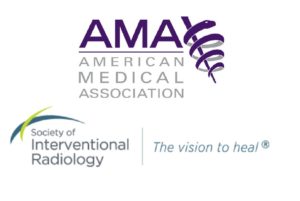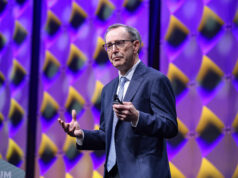 The Society of Interventional Radiology (SIR) and the American Medical Association (AMA) have sent a letter to the Centers for Medicare and Medicaid Services (CMS) urging them to implement and pay for Current Procedural Terminology (CPT) code 99072 to compensate practices for the additional supplies and new staff activities required to provide safe patient care during the COVID-19 pandemic.
The Society of Interventional Radiology (SIR) and the American Medical Association (AMA) have sent a letter to the Centers for Medicare and Medicaid Services (CMS) urging them to implement and pay for Current Procedural Terminology (CPT) code 99072 to compensate practices for the additional supplies and new staff activities required to provide safe patient care during the COVID-19 pandemic.
The medical societies of each of the 50 states of America, plus the Medical Society of the District of Columbia, are also signatories, in addition to 76 societies and associations representing different medical specialities at the national level—such as the Society for Vascular Surgery, the American Urological Association, and the Spine Intervention Society. Altogether, hundreds of thousands of physicians are represented by the undersigned organisations.
Addressed to CMS administrator Seema Verna, the letter states that the COVID-19 public health emergency “has placed unprecedented strain on our [the signatories’] physician members, including ongoing threats to their financial viability due to months of lost revenue from practice closures and/or operating at reduced capacity”. According to the letter, in July and August 2020, an AMA survey of 3,500 physicians who provided at least 20 hours of patient care per week prior to the pandemic found that 81% of respondents reported that revenue was still lower than pre-pandemic times, with the average revenue drop being 32%. Compounding the financial stress of lost revenue, practices are also incurring additional costs for heightened infection control protocols and personal protective equipment (PPE).
The letter writers continue: “We recognise and appreciate the significant support and flexibility CMS has provided to physician practices. However, it is imperative that CMS specifically compensate physicians for the additional expenses involved in treating patients during the public health emergency. Practices incur significant costs in implementing the increased infection control measures required to provide safe care during the COVID-19 pandemic. These costs include additional supplies (such as cleaning products and facial masks for both staff and patients), clinical staff time for activities such as pre-visit instructions and symptom checks upon arrival, and implementation of office redesign measures to ensure social distancing.”
The AMA survey from the summer of 2020 describes how practice owners reported an average increase in PPE spending of 57% from February 2020, with 25% of owners saying that PPE expenses have risen at least 75%. Nearly all (99%) surveyed physicians have implemented infection control protocols, such as pre-visit screening phone calls, screening for COVID-19 symptoms/exposure and checking patient temperatures upon office arrival, and limiting the number of patients in the waiting room.
Detailing CMS’ actions, the letter claims that, in order to address the financial impact of these new protocols related to the COVID-19 pandemic, “the CPT Editorial Panel approved CPT code 99072 on 8 September 8 2020. According to CPT guidance, 99072 is used to report the additional supplies, materials, and clinical staff time over and above the practice expense(s) included in an office visit or other non-facility service(s) when performed during a public health emergency, as defined by law, due to respiratory-transmitted infectious disease.”
“Our organisations advocate for CMS to immediately implement and pay for CPT code 99072 with no patient cost-sharing during the public health emergency,” the societies write. “Payment for these additional costs should be fully funded and not be subject to budget neutrality. CMS could use remaining money from the CARES Act funding to pay physicians for these costs and/or recognise the decreased expenditures during the early months of the pandemic to waive budget neutrality. Your support will ensure that physicians receive the critical financial resources needed to maintain intensive infection control measures during the COVID-19 public health emergency.”










